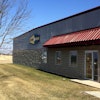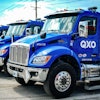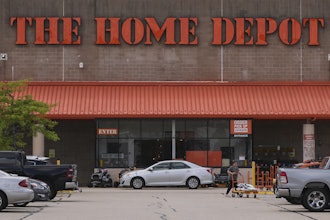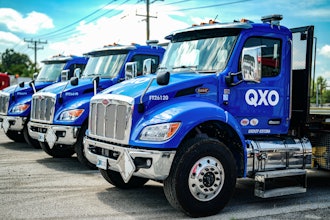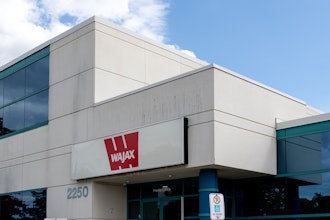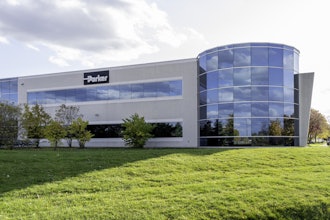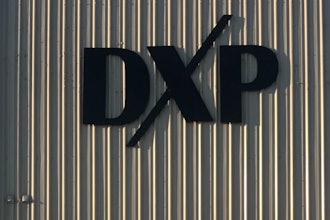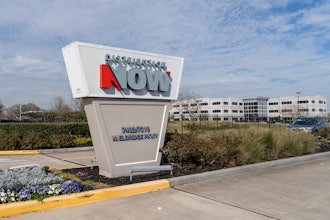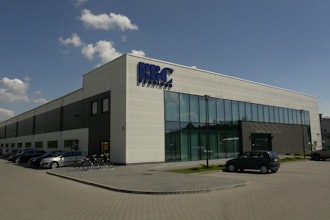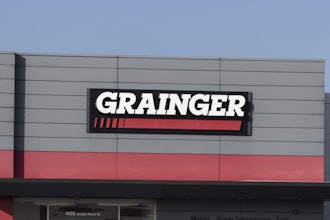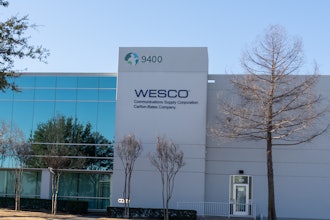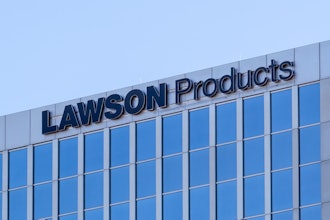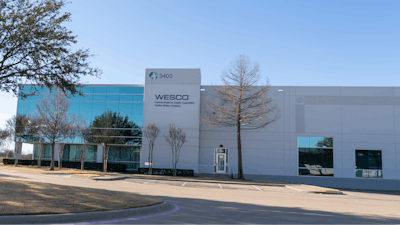
Wesco International on Thursday reported a 4.6% decline in second-quarter sales following the sale of its Wesco Integrated Supply business to Vallen earlier this year.
The Pittsburgh distribution and supply chain services company — no. 7 on ID’s 2023 Big 50 — said the WIS sale and the impact of foreign currency exchange dented its overall revenue number, and that organic sales were down just 0.8% compared to the same quarter last year.
But company officials said Wesco now anticipates more modest year-over-year sales growth in the final half of the year, leading to a reduced forecast for the full year.
The company posted net sales of $5.5 billion in the April-June period; the same window last year saw $5.7 billion in sales. The drop in organic sales, the company said, reflected declines in its electronics and, especially, its utility divisions — the latter of which experienced a 15% slide in sales due to a “significant slowdown” in customer purchases.
Wesco CEO John Engel acknowledged that the latest quarter’s results were “somewhat below our expectations.” The company had anticipated a “low single-digit” drop in revenue amid a “mixed and multi-speed economic environment.” Engel noted that its results improved during the quarter and that June saw a year-over-year increase in organic sales.
Wesco’s Q2 net income rose from $192 million to nearly $233 million year-over-year, but operating profit was down more than 11% over that span to $323.5 million. Gross profit also fell from $1.24 billion down to shy of $1.2 billion as gross margin slipped by 30 basis points. The company’s adjusted EBITDA margin was down 40 basis points in the quarter, and adjusted earnings per diluted share declined from $3.71 to $3.21.
Wesco had maintained its debut 2024 forecast of 1% to 4% sales growth in early May, but it now expects full-year organic sales to come in between 1.5% below and 0.5% above its 2023 totals.
"We expect the mixed economic environment and customer purchasing delays in utility and broadband to continue through the second half of 2024,” Engel said. “Quoting, bid activity levels and our backlog remain healthy, supporting our view for sales growth in the second half against an easier year-over-year comparable, but at a more modest rate than our previous outlook.”

